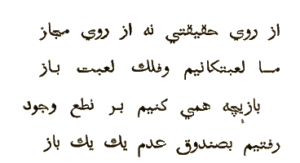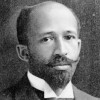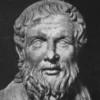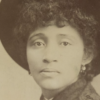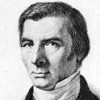Fear makes evry thing and evry body masters over us; it iz the wust slavery thare iz.
[Fear makes everything and everybody masters over us; it is the worst slavery there is.]
Josh Billings (1818-1885) American humorist, aphorist [pseud. of Henry Wheeler Shaw]
Everybody’s Friend, Or; Josh Billing’s Encyclopedia and Proverbial Philosophy of Wit and Humor, ch. 148 “Affurisms: Ink Brats” (1874)
(Source)
Quotations about:
control
Note not all quotations have been tagged, so Search may find additional quotes on this topic.
Your memory is a monster; you forget — it doesn’t. It simply files things away. It keeps things for you, or hides things from you — and summons them to your recall with a will of its own. You think you have a memory; but it has you!
John Irving (b. 1942) American-Canadian novelist and screenwriter [b. John Wallace Blunt Jr.]
A Prayer for Owen Meany, ch. 1 “The Foul Ball” (1989)
(Source)
They don’t ask much of you. They only want you to hate the things you love and to love the things you despise.
Boris Pasternak (1890-1960) Russian poet, novelist, and literary translator
Quoted in “Farewell in a Poet’s Land,” Life Magazine (1960-06-13)
(Source)
On the Communist leadership of the Soviet Union.
This article was an obituary for Pasternak. I have been unable to find a primary source for the quote.
One of the hardest lessons of young Sam’s life had been finding out that the people in charge weren’t in charge. It had been finding out that governments were not, on the whole, staffed by people who had a grip, and that plans were what people made instead of thinking.
‘Tis all a Chequer-board of Nights and Days
Where Destiny with Men for Pieces plays:
Hither and thither moves, and mates, and slays,
And one by one back in the Closet lays.
Omar Khayyám (1048-1123) Persian poet, mathematician, philosopher, astronomer [عمر خیام]
Rubáiyát [رباعیات], Bod. # 94 [tr. FitzGerald, 1st ed. (1859), # 49]
(Source)
Alternate translations:
In the view of reality, not of illusion,
We mortals are chess-men and fate is the player;
We each act our game on the board of life,
And then one by one are swept into the box!
[tr. Cowell (1858), # 27]
Impotent Pieces of the Game He plays
Upon this Chequer-board of Nights and Days;
Hither and thither moves, and checks, and slays;
And one by one back in the Closet lays.
[tr. FitzGerald, 2nd ed. (1868), # 74, and 3rd ed. (1872) # 69]
But helpless Pieces of the Game He plays
Upon this Chequer-board of Nights and Days;
Hither and thither moves, and checks, and slays,
And one by one back in the Closet lays.
[tr. FitzGerald, 4th ed. (1879), # 49, and 5th ed. (1889), # 49]
Here, below, we are naught but puppets tor the diversion of the wheel of the heavens. This is indeed a truth, and no simile. We truly are but pieces on this chessboard of humanity, which in the end we leave, only to enter, one by one, into the grave of nothingness.
[tr. McCarthy (1879), # 61]
We are but chessmen, who to move are fain,
Just as the great Chessplayer doth ordain.
It moves us on life's chess-board to and fro,
And then in death's box shuts us up again.
[tr. Whinfield (1882), # 148]
We are but chessmen, destined, it is plain,
That great chess player, Heaven, to entertain;
It moves us on life's chess-board to and fro,
And then in death's box shuts up again.
[tr. Whinfield (1883), # 270]
We are all Puppets of the Sky, we run
As wills the Player till the Game is done,
And when The Player wearies of the Sport,
He throws us into Darkness One by One.
[tr. Garner (1887), 4.2]
But puppets are we in Fate's puppet-show --
No figure of speech is this, but in truth 't is so!
On the draughtboard of Life we are shuffled to and fro,
Then one by one to the box of Nothing go!
[tr. M. K. (1888)]
HERE, BELOW, WE ARE NAUGHT BUT
PUPPETS FOR THE DIVERSION OF THE
WHEEL OF THE HEAVENS. THIS IS
INDEED A TRUTH, AND NO SIMILE.
WE TRULY ARE BUT PIECES ON
THIS CHESSBOARD OF HUMANITY,
WHICH IN THE END WE LEAVE, ONLY
TO ENTER, ONE BY ONE, INTO THE
GRAVE OF NOTHINGNESS.
[tr. McCarthy (1889)]
Upon this checkerboard of joys and woes
The wretched puppet hither and thither goes,
Until the mighty Player of the skies
His plaything back in the casket throws.
[tr. Garner (1898), # 82]
We're the pieces Heaven moves on the chessboard of space
(No metaphor this, but the truth of the case);
Each awhile on Life's board plays his game and returns
In the box of nonentity back to his place.
[tr. Payne (1898), # 480]
To speak plain language, and not in parables,
we are the pieces and heaven plays the game,
we are played together in a baby-game upon the chessboard of existence,
and one by one we return to the box of non-existence.
[tr. Heron-Allen (1898), # 94]
'Tis not a fancy of disordered brains
But certain truth, that on life's checkered square
We men are puppets, whose steps God ordains;
The time is short in which we dally there,
Then in death's casket one by one we fall,
The game is played and earth must cover all.
[tr. Cadell (1899), # 108]
Like helpless chessmen on the checkered blocks,
We 're hither, thither moved, till Heaven knocks
The luckless pieces from the crowded board,
And one by one returns them to the box.
[tr. Roe (1906), # 53]
In truth and not by way of simile.
Heaven plays the game and its mere puppets we;
In sport moved on Life's chess-board, one by one
We reach the chess-box of Nonentity!
[tr. Thompson (1906), # 317]
To speak plain language, parable to shame,
We are the pieces, Heaven plays the game:
A childish game upon the board of Life,
Then back into the Box from whence we came.
[tr. Talbot (1908), # 94]
To speak the truth and not as a metaphor, we are
the pieces of the game and Heaven the player.
We play a little game on the chessboard of existence.
Then we go back to the box of non-existence, one by one.
[tr. Christensen (1927), # 6]
This is not an allegory, it is reality:
We are the figures and the Sphere is the player.
We act a play on the boards of existence
And we go back into the box of non-existence one by one.
[tr. Rosen (1928), # 168]
We puppets dance to tunes of Time we know,
We are puppets in fact, and not for show;
Existence is the carpet where we dance,
So one by one where aught is naught we go.
[tr. Tirtha (1941), # 2.6]
Let me speak out, unallegorically:
We are mere puppets of our Master, toys.
On the Table of Existence, one by one.
Flung back in the toy box of Non-existence.
[tr. Graves & Ali-Shah (1967), # 73]
We are but chessmen in God’s scheme of things:
The most are merely pawns, a few are kings;
And when our unimportant game is done
Back in the box we tumble one by one.
[tr. Bowen (1976), # 44]
We are the puppets and fate the puppeteer
This is not a metaphor, but a truth sincere
On this stage, fate for sometime our moves steer
Into the chest of non-existence, one by one disappear.
[tr. Shahriari (1998), literal]
The hands of fate play our game
We the players are given a name
Some are tame, others gain fame
Yet in the end, we’re all the same.
[tr. Shahriari (1998), figurative]
Whoso pretends that Love is no great god,
The lord and master of all deities,
Is either dull of soul, or, dead to beauty,
Knows not the greatest god that governs men.
[Ἔρωτα δ᾿ ὅστις μὴ θεὸν κρίνει μέγαν
καὶ τῶν ἁπάντων δαιμόνων ὑπέρτατον,
ἢ σκαιός ἐστιν ἢ καλῶν ἄπειρος ὢν
οὐκ οἶδε τὸν μέγιστον ἀνθρώποις θεόν.]Euripides (485?-406? BC) Greek tragic dramatist
Auge [Αὐγῃ], frag. 269 (c. 408 BC) [tr. Symonds (1880)]
(Source)
The second line ("καὶ ... ὑπέρτατον" = "the highest of all deities") was apparently inserted by Stobaeus.
Nauck (TGF) frag. 269, Barnes frag. 15, Musgrave frag. 3. (Source (Greek)). Alternate translations:
He who esteems not Love a mighty God,
And to all other Deities superior,
Devoid of reason, or to beauty blind,
Knows not the ruler of this nether world.
[tr. Wodhall (1809)]
Anyone who does not count Love a great god,
and the highest of all the divine powers,
is either obtuse or, lacking experience in his benefits,
is unacquainted with human beings’ greatest god.
[tr. Collard / Cropp (2008); Funke (2013)]
Whoever does not judge Love to be a great god, and highest of all the divine powers, is either a fool or, lacking experience of his good things, is not acquainted with mankind's greatest god.
[tr. Wright (2017)]
Whoever does not think Eros a great god
is either silly or ignorant of blessings.
[Source]
It is the head that governs men. A kind heart is of no use in a chess game.
[On gouverne les hommes avec la tête. On ne joue pas aux échecs avec un bon cœur.]
Nicolas Chamfort (1741-1794) French writer, epigrammist (b. Nicolas-Sébastien Roch)
Products of Perfected Civilization [Produits de la Civilisation Perfectionée], Part 1 “Maxims and Thoughts [Maximes et Pensées],” ch. 8, ¶ 522 (1795) [tr. Merwin (1969)]
(Source)
(Source (French)). Alternate translations:
People are governed with the head; kindness of heart is little use in chess.
[tr. Mathers (1926)]
Men are governed using the head. A kind heart is useless in a chess game.
[tr. Dusinberre (1992)]
A person governs men with his head. One does not play chess with goodness of heart.
[tr. Siniscalchi (1994), ¶ 521]
A wise man neither lets himself be governed nor seeks to govern others: he wishes reason alone to govern, and for ever.
[Un homme sage ni ne se laisse gouverner, ni ne cherche à gouverner les autres: il veut que la raison gouverne seule et toujours.]
Jean de La Bruyère (1645-1696) French essayist, moralist
The Characters [Les Caractères], ch. 4 “Of the Heart [Du Coeur],” § 71 (4.71) (1688) [tr. Stewart (1970)]
(Source)
(Source (French)). Alternate translations:
A Wise Man neither suffers himself to be govern'd, nor attempts to govern others. 'Tis his reason alone which always governs him.
[Bullord ed. (1696)]
A Wise Man neither suffers himself to be govern'd, nor attempts to govern others. He wou'd have Reason alone always to govern him.
[Curll ed. (1713)]
An intelligent man neither allows himself to be controlled nor attempts to control others; he wishes reason alone to rule, and that always.
[tr. Van Laun (1885)]
The worst of superstitions is, to think
Your own to be the most endurable.
[…] Yours, the only one,
to which dim-sighted mankind may be trusted,
Till they can bear the brighter light of truth.[Der Aberglauben schlimmster ist, den seinen
Für den erträglichern zu halten […] dem allein
Die blöde Menschheit zu vertrauen, bis
Sie hellern Wahrheitstag gewöhne.]Gotthold Lessing (1729-1781) German playwright, philosopher, dramaturg, writer
Nathan the Wise [Nathan der Weise], Act 4, sc. 4 [Templar] (1779) [tr. Reich (1860)]
(Source)
Some of the translations leave out the second part.
(Source (German)). Alternate translations:
The worst of superstitions is to think
One's own most bearable.
[tr. Taylor (1790)]
That superstition is the worst of all
Which thinks itself the easiest to be borne --
[...] And to trust
To it alone a blind humanity
Till it is used to truth's more brilliant light.
[tr. Boylan (1878)]
The very worst
Of superstitions is, to hold one's own
The most endurable [...]
That only to entrust
Purblind humanity, till it learn to bear
The light of truth's clear day.
[tr. Corbett (1883)]
The worst of superstitions is, to think
One's own the most supportable. [...]
To it alone trust simple human-kind
Until to truth's bright rays it grows accustomed.
[tr. Jacks (1894)]
The worst of superstitions is to deem
Our special chains the most endurable --
[...] And to these alone
To trust purblind humanity until
Its eye can bear the brilliant noon of truth.
[tr. Maxwell (1917)]
The worst superstition is to consider one's own superstition the more tolerable one [...] to which alone to entrust weak-minded mankind until it will grow used to the brighter light of truth.
[tr. Reinhardt (1950)]
That superstition
Is worst which takes itself to be of all
The most endurable [...] and to which alone one may
Entrust dull-witted humankind, till it's
Accustomed to the brighter light of truth.
[tr. Morgan (1955)]
The most bigoted of superstitions is to hold one's own faith to be the only right one [...] which poor, blind men must trust until they see the light.
[tr. Ade (1972)]
There are some men who listen neither to reason nor to good advice, and who deliberately go astray through fear of being dominated.
[Il se trouve des hommes qui n’écoutent ni la raison ni les bons conseils, et qui s’égarent volontairement par la crainte qu’ils ont d’être gouvernés.]
Jean de La Bruyère (1645-1696) French essayist, moralist
The Characters [Les Caractères], ch. 4 “Of the Affections [Du Coeur],” § 71 (4.71) (1688) [tr. Stewart (1970)]
(Source)
(Source (French)). Alternate translations:
There are those men who will not hearken to reason, or good council, but deviate of their own Heads, purely for fear of being govern'd.
[Bullord ed. (1696)]
There are some Men who will not hearken to Reason and good Counsel, but deviate of their own Heads, purely for fear of being govern'd.
[Curll ed. (1713)]
There are some Men who turn the deaf Ear to Reason and friendly Counsel, and play the Fool of their own Heads, purely for fear of being governed.
[Browne ed. (1752)]
There are some men who turn a deaf ear to reason and good advice, and willfully go wrong for fear of being controlled.
[tr. Van Laun (1885)]
If you can’t control your reproduction, you can’t control your life.
Joycelyn Elders (b. 1933) American pediatrician, public health administrator, academic
Interview by Claudia Dreifus, New York Times (1994-01-30)
(Source)
A frequent phrase of hers.
Any man with few needs appears a menace to the rich for he is always in a position to escape from them, and the tyrants see that thus they lose a slave.
[Tout homme qui a peu de besoins semble menacer les riches d’être toujours prêt à leur échapper. Les tyrans voient par là qu’ils perdent un esclave.]
Nicolas Chamfort (1741-1794) French writer, epigrammist (b. Nicolas-Sébastien Roch)
Products of Perfected Civilization [Produits de la Civilisation Perfectionée], Part 1 “Maxims and Thoughts [Maximes et Pensées],” ch. 3, ¶ 266 (1795) [tr. Mathers (1926)]
(Source)
(Source (French)). Alternate translations:
Any man whose needs are few seems to threaten the rich with the possibility of his escaping them. Tyrants are thereby faced with the prospect of losing a slave.
[tr. Merwin (1969)]
Any man who has few needs seems to threaten the rich with his readiness to escape from them. Thereby tyrants realize that they are losing a slave.
[tr. Pearson (1973)]
Every man who has few needs seems to menace the wealthy with the constant threat of escaping from them. Tyrants see in such a proposition the loss of a slave.
[tr. Siniscalchi (1994)]
Anyone whose needs are small seems threatening to the rich, because he's always ready to escape their control. This is how tyrants recognize that they're losing a slave.
[tr. Parmée (2003)]
Liberty trains for liberty. Responsibility is the first step in responsibility.
W. E. B. Du Bois (1868-1963) American writer, historian, social reformer [William Edward Burghardt Du Bois]
John Brown, ch. 13 “The Legacy of John Brown” (1909)
(Source)
On the policy among white colonial powers that non-whites "ought to be under the restraint and benevolent tutelage of stronger and wiser nations for their own benefit," until they are "capable" of being free.
The power of Thought, — the magic of the Mind!
George Gordon, Lord Byron (1788-1824) English poet
The Corsair, Canto 1, st. 8, l. 184 (1814)
(Source)
The abilities -- plus success -- that Conrad uses to control his crew.
Plato said that virtue has no master. If a person does not honor this principle and rejoice in it, but is purchasable for money, he creates many masters for himself.
Apollonius of Tyana (c. AD 15-100) Greek philosopher and religious leader [Ἀπολλώνιος]
Letters from Apollonius of Tyana, ep. 15, Letter to Euphrates [tr. Jones (2006)]
(Source)
The reference to Plato's Republic, X 617 E.
We want perfection in other people, and yet we do not put right our own failings. We want to see others firmly corrected, but we refuse correction ourselves. We take offence when permission is given to others, but we do not want our own requests refused. We want rules to check the activities of others, but we are indignant at restrictions on ourselves.
[Libenter videmus alios perfectos, sed tamen proprios non emendamus defectus. Volumus quod alii districte corrigantur, et nos ipsi corrigi nolumus, aut negari quod petimus. Alios restringi per statuta volumus, et ipsi nullatenus patimur amplius cohiberi.]
Thomas à Kempis (c. 1380-1471) German-Dutch priest, author
The Imitation of Christ [De Imitatione Christi], Book 1, ch. 16, v. 2ff (1.16.2-3) (c. 1418-27) [tr. Knott (1962)]
(Source)
(Source (Latin)). Alternate translations:
We would gladly have others perfect, but will not amend our own defaults. We would that others should be straitly corrected for their offences, but we will not be corrected. It misliketh us that others have liberty, but we will not be denied of that we ask. We would also that others should be restrained according to the statutes, but we in nowise will be restrained.
[tr. Whitford/Raynal (1530/1871)]
We would gladly have others perfect, yet we will not amend our own faults. We desire others to be strictly corrected for their offenses, yet we will not be corrected. We dislike it that others have liberty, yet we will not be denied what we ask. We desire that others should be restrained according to the laws, yet we will in no way be restrained.
[tr. Whitford/Gardiner (1530/1955)]
It is injustice to expect that in another which thou hast not in thy self, to looke for perfection in others, and yet not to amend imperfections in our selves. We will have others severely punisht, and will not amend our selves; the large liberty of others disliketh us, and yet we will not have our desires deni'd us, we will have rigorous Lawes imposed upon others, but in no sort will we our selves be restrained.
[tr. Page (1639), 1.16.8-9]
And, indeed, nothing is more common, than to express exceeding Zeal in amending our Neighbours, and mighty Indignation against Their Vices or Imperfections, while at the same time we neglect the beginning at Home, and either quite overlook, or seem highly contented with our own. We set up for Reformers, declaim at the Wickendess of the Age, and are all for suppressing and punishing it by vigorous Laws; and yet are unwilling that any Check or Restraint should be put upon our own Freedoms.
[tr. Stanhope (1696; 1706 ed.)]
But we require perfection in the rest of mankind, and take no care to rectify the disorders of our own heart; we desire that the faults of others should be severely punished, and refuse the gentlest correction ourselves; we are offended at their licentiousness, and yet cannot bear the least opposition to our own immoderate desires. We would subject all to the control of rigorous statute and penal laws, but will not suffer any restraint upon our own actions.
[tr. Payne (1803), 1.16.3]
We would willingly have others perfect, and yet we amend not our own faults. We will have others severely corrected, and will not be corrected ourselves. The large liberty of others displeaseth us; and yet we will not have our own desires denied us. We will have others kept under by strict laws; but in no sort will ourselves be restrained.
[ed. Parker (1841)]
We willingly require perfection in the rest of mankind, and yet do not rectify the disorders of our own hearts. We desire that the faults of others should be severely punished, and refuse the gentlest correction ourselves. We are offended at their licentiousness, and yet cannot bear the least denial of our own immoderate desires. We would subject all to the control of rigorous statutes, but suffer no restraint upon our own action.
[tr. Dibdin (1851)]
We would fain have others perfect, and yet we amend not our own defects. We would have others strictly corrected, but will not be corrected ourselves. The large liberty of others displeases us, and yet we would not be denied anything we ask for. We wish others to be bound down by laws, and we suffer ourselves to be in no sort restrained.
[ed. Bagster (1860)]
We are ready to see others made perfect, and yet we do not amend our own shortcomings. We will that others be straitly corrected, but we will not be corrected ourselves. The freedom of others displeaseth us, but we are dissatisfied that our own wishes shall be denied us. We desire rules to be made restraining others, but by no means will we suffer ourselves to be restrained.
[tr. Benham (1874)]
We are desirous to have others perfect, and yet we amend not our own faults. We will have others severely corrected, and will not be corrected ourselves. The large liberty of others displeaseth us; and yet we will not have our own desires denied us. We will have others kept under by strict laws; but in no sort will we ourselves be restrained.
[tr. Anon. (1901)]
We want them to be perfect, yet we do not correct our own faults. We wish them to be severely corrected, yet we will not correct ourselves. Their great liberty displeases us, yet we would not be denied what we ask. We would have them bound by laws, yet we will allow ourselves to be restrained in nothing.
[tr. Croft/Bolton (1940)]
We would readily have others perfect and yet not amend our own defects. We want others rigidly corrected and are unwilling to be corrected ourselves. The wide freedom of others displeases us, and yet we would not be denied whatever we ask. We wish others to be bound by rules, and will ourselves in no way be held in.
[tr. Daplyn (1952)]
For we require other people to be perfect, but do not correct our own faults. We wish to see others severely reprimanded; yet we are unwilling to be corrected ourselves. We wish to restrict the liberty of others, but are not willing to be denied anything ourselves. We wish others to be bound by rules, yet we will not let ourselves be bound.
[tr. Sherley-Price (1952)]
We like to have everybody around us quite perfect, but our own faults -- we never seem to correct them. Tom, Dick and Harry must be strictly called to order, but we aren't fond of being called to order ourselves. It is always the other man that has too much rope given him -- our wishes must not be thwarted; rules for everybody else, but our own liberties must not be abridged for a moment.
[tr. Knox-Oakley (1959), 1.16.3]
Though quick to expect perfection in others, we take little care to correct our own shortcomings. We wouidl have others strictly corrected, but not ourselves. The wide freedom of others displeases us, yet we wish to be denied nothing that we ourselves desire. We would have others under the restraint of the rule while unwilling ourselves to be under any sort of restraint.
[tr. Rooney (1979)]
We would willingly have others be perfect, and yet we fail to correct our own faults. We want others to be strictly corrected, and yet we are unwilling to be corrected ourselves. Other peoples' far-ranging freedom annoys us, and yet we insist on having our own way. We wish others to be tied down by rules, and yet we will not allow ourselves to be held in check in any way at all.
[tr. Creasy (1989)]
If you don’t turn your life into a story, you just become a part of someone else’s story.
Terry Pratchett (1948-2015) English author
The Amazing Maurice and His Educated Rodents, ch. 8 [Malicia] (2008)
(Source)
The neurotic feels like a Christmas shopper who keeps dropping his packages, and it’s raining.
Mignon McLaughlin (1913-1983) American journalist and author
The Neurotic’s Notebook, ch. 5 (1963)
(Source)
Away with empire, and oppressive laws;
None but the fool can wish for regal power,
That he may proudly lord it o’er his equals.[οὔτ᾽ εἰκὸς ἄρχειν οὔτ᾽ ἐχρὴν ἄνευ νόμου
τύραννον εἶναι” μωρία δὲ καὶ ϑέλειν
ὃς τῶν ὁμοίων βούλεται χρατεῖν μόνος.]Euripides (485?-406? BC) Greek tragic dramatist
Antigone [Ἀντιγόνη], frag. 172 (TGF, Kannicht) (c. 420-406 BC) [tr. Wodhall (1809)]
(Source)
Barnes frag. 11, Musgrave frag. 5. (Source (Greek)). Alternate translation:
It is neither reasonable to rule, nor ought there to be a king [law].
It is folly for a man even to want [...]
who wishes to hold sole power over his peers.
[Source]
Men who want to be feared must necessarily fear the very people who fear them.
[Etenim qui se metui volent, a quibus metuentur, eosdem metuant ipsi necesse est.]
Marcus Tullius Cicero (106-43 BC) Roman orator, statesman, philosopher
De Officiis [On Duties; On Moral Duty; The Offices], Book 2, ch. 7 (2.7) / sec. 24 (44 BC) [tr. Edinger (1974)]
(Source)
(Source (Latin)). Alternate translations:
For those who desire to have others be afraid of them, must needs be afraid of those others in their turns.
[tr. Cockman (1699)]
For they who desire to become objects of terror to others, must dread those who regard them with fear.
[tr. McCartney (1798)]
For it is a necessary consequence, that men fear those very persons by whom they wish to be feared.
[tr. Edmonds (1865)]
For it is inevitable that those who wish to be feared should themselves fear the very persons by whom they are feared.
[tr. Peabody (1883)]
For men involuntarily fear those whom they intimidate.
[tr. Gardiner (1899)]
Those who wish to be feared must inevitably be afraid of those whom they intimidate.
[tr. Miller (1913)]
Let the rigour of a master over his slaves be applied by those who hold men under the empire of oppression; but they who rule by the principle of fear in a free state, practice a system of unparalleled madness. […] Let us therefore embrace that mode of conduct which has the most extensive influence, which contributes most, not only to the safety, but to the increase of wealth and power, and which rests, not upon fear, but upon the continuation of kind affections. — This is the method by which not only in private, but in public, we shall most easily obtain what we desire.
[Sed iis, qui vi oppresses imperio coercent, sit sane adhibenda saevitia, ut eris in famulos, si aliter teneri non possunt; qui vero in libera civitate ita se instruunt, ut metuantur, iis nihil potest esse dementius. […] Quod igitur latissime patet neque ad incolumitatem solum, sed etiam ad opes et potentiam valet plurimum, id amplectamur, ut metus absit, caritas retineatur. Ita facillime, quae volemus, et privatis in rebus et in re publica consequemur.]
Marcus Tullius Cicero (106-43 BC) Roman orator, statesman, philosopher
De Officiis [On Duties; On Moral Duty; The Offices], Book 2, ch. 7 (2.7) / sec. 24 (44 BC) [tr. McCartney (1798)]
(Source)
(Source (Latin)). Alternate translations:
It is well enough in those who by open force have reduced any nation, and accordingly rule it with a high hand, if they do sometimes use rigour and severity, like masters towards their slaves when there is no other way of holding them in subjection: but for those who are magistrates in a free city, to endeavour to make themselves feared by the people, is one of the maddest and most desperate attempts on the face of the earth. [...] Let us therefore embrace and adhere to that method which is of the most universal influence, and serves not only to secure us what we have, but moreover to enlarge our power and authority; that is, in short, let us rather endeavour to be loved than feared, which is certainly the best way to make us successful, as well in our private as our public business.
[tr. Cockman (1699)]
But the truth is, cruelty must be employed by those who keep others in subjection by force; as by a master to his slaves, if they cannot otherwise be managed. But of all madmen, they are the maddest who, in a free state so conduct themselves as to be feared. [...] We ought therefore to follow this most obvious principle, that dread should be removed and affection reconciled, which has the greatest influence not only on our security but also on our interest and power; and thus we shall most easily attain to the object of our wishes, both in private and political affairs.
[tr. Edmonds (1865)]
Those who hold under their command subjects forcibly kept down must indeed resort to severity, as masters toward their slaves when they cannot otherwise be restrained. But nothing can be more mad than the policy of those who in a free state conduct themselves in such a way as to be feared. [...] Let us then embrace the policy which has the widest scope, and is most conducive, not to safety alone, but to affluence and power, namely, that by which fear may be suppressed, love retained. Thus shall we most easily obtain what we desire both in private and in public life.
[tr. Peabody (1883)]
Let tyrants exercise cruelty, as a master does towards his slaves when he cannot control them by other means: but for a Citizen of a free State to equip himself with the weapons of intimidation is the height of madness. [...] Let us then put away fear and cleave to love; love appeals to every heart, it is the surest means of gaining safety, influence and power; in a word, it is the key to success both in private and in public life.
[tr. Gardiner (1899)]
But those who keep subjects in check by force would of course have to employ severity -- masters, for example, toward their servants, when these cannot be held in control in any other way. But those who in a free state deliberately put themselves in a position to be feared are the maddest of the mad. [...] Let us, then, embrace this policy, which appeals to every heart and is the strongest support not only of security but also of influence and power -- namely, to banish fear and cleave to love. And thus we shall most easily secure success both in private and in public life.
[tr. Miller (1913)]
Men who dominate and command other men, whom they have subjugated by force, have to apply some harshness, just as the owner uses harshness toward his slaves if he cannot control them any other way. But it is completely senseless for men in a free city act in such a way that it causes others to live in fear: no one could be more insane. [...] So let us embrace a rule that applies widely and that is extremely effective not only maintaining safety but also in acquiring wealth and power, namely, that there should be no fear, that one should hold affection dear. This is the easiest way for ust to attain what we want both in private affairs and in the government.
[tr. Edinger (1974)]
Man feels the need to rake leaves, clean up the summer’s remnants, proclaim his tenancy by making things neat and tidy. Nature doesn’t bother. The tree thrives on its own trash and the see sprouts in the parent plant’s midden heap. Each new season grows from the leftovers from the past. That is the essence of change, and change is the basic law. Nature hasn’t time to be neat and tidy.
Miss Manners has come to believe that the basic political division in the society is not between liberals and conservatives but between those who believe that they should have a say in the love lives of strangers and those who do not.
Judith Martin (b. 1938) American author, journalist, etiquette expert [a.k.a. Miss Manners]
Miss Manners Rescues Civilization, ch. 5 (1996)
(Source)
Genocide is natural! Rape is natural! No, what’s natural is not necessarily good — often it’s repulsive. One of the most important functions of human society, and the driving force behind most political institutions, is to prevent humans from doing what comes naturally.
Jared Diamond (b. 1937) American geographer, historian, ornithologist, author
“Choosing Success,” interview by Catherine Seip, National Review (30 Jun 2006)
(Source)
A State which dwarfs its men, in order that they may be more docile instruments in its hands even for beneficial purposes — will find that with small men no great thing can really be accomplished; and that the perfection of machinery to which it has sacrificed everything, will in the end avail it nothing, for want of the vital power which, in order that the machine might work more smoothly, it has preferred to banish.
John Stuart Mill (1806-1873) English philosopher and economist
On Liberty, ch. 5 “Applications” (1859)
(Source)
Closing words of the book.
The task is to throw all those things on the exact same burn pile as the collected works of all the apologists for conservatism, and start fresh. The core proposition of anti-conservatism requires no supplementation and no exegesis. It is as sufficient as it is necessary. What you see is what you get:
The law cannot protect anyone unless it binds everyone; and it cannot bind anyone unless it protects everyone.
Frank Wilhoit (contemp.) American composer and software architect
Crookedtimber.org, “The Travesty of Liberalism,” Comment #26 (22 Mar 2018)
(Source)
Conservatism consists of exactly one proposition, to wit:
There must be in-groups whom the law protects but does not bind, alongside out-groups whom the law binds but does not protect.
There is nothing more or else to it, and there never has been, in any place or time.
Frank Wilhoit (contemp.) American composer and software architect
Crookedtimber.org, “The Travesty of Liberalism,” Comment #26 (22 Mar 2018)
(Source)
It is the ability to choose which makes us human.
Madeleine L'Engle (1918-2007) American writer
Walking on Water: Reflections on Faith and Art, ch. 2 (1980)
(Source)
Because we are the cause of our environmental problems, we are the ones in control of them, and we can choose or not choose to stop causing them and start solving them. The future is up for grabs, lying in our own hands. We don’t need new technologies to solve our problems; while new technologies can make some contribution, for the most part we “just” need the political will to apply solutions already available.
Jared Diamond (b. 1937) American geographer, historian, ornithologist, author
Collapse: How Societies Choose to Fail or Succeed, Part 4, ch. 16 (2005)
(Source)
Anger is a passion, so it makes people feel alive and makes them feel they matter and are in charge of their lives. So people often need to renew their anger a long time after the cause of it has died, because it is a protection against helplessness and emptiness just like howling in the night. And it makes them feel less vulnerable for a little while.
Merle Shain (1935-1989) Canadian journalist and author
Hearts That We Broke Long Ago, ch. 5 (1983)
(Source)
A nation which, in the name of loyalty or of patriotism or of a sincere and high-sounding idea, discourages criticism and dissent, and puts a premium on acquiescence and conformity, is headed for disaster.
The garb of religion is the best cloak for power.
William Hazlitt (1778-1830) English writer
“On the Clerical Character,” Conclusion (7 Feb 1818)
(Source)
My political opinions lean more and more to Anarchy (philosophically understood, meaning abolition of control not whiskered men with bombs). […] The most improper job of any man, even saints (who at any rate were at least unwilling to take it on), is bossing other men. Not one in a million is fit for it, and least of all those who seek the opportunity.
J.R.R. Tolkien (1892-1973) English writer, fabulist, philologist, academic [John Ronald Reuel Tolkien]
Letter to Christopher Tolkien (1943-11-29)
(Source)
Letter 52 in Humphrey Carpenter, ed., The Letters of J.R.R. Tolkien (1981).
Never be deceived that the rich will allow you to vote away their wealth.
Lucy Parsons (1851-1942) American labor organizer, anarchist, orator [a.k.a. Lucy Gonzalez]
Speech, Founding Convention of the Industrial Workers of the World (27 Jun 1905)
(Source)
Reprinted in Freedom, Equality and Solidarity: Writings & Speeches, 1878-1937.
When vision fails
Direction is lost.When direction is lost
Purpose may be forgotten.When purpose is forgotten
Emotion rules alone.When emotion rules alone,
Destruction … destruction.
All citizens do have a measure of control, at least in democracies where their votes are counted, of how they belong to their nations. Perhaps they will have more confidence in unconventional choices if they see that each nation’s founders were disobedient and unpredictable, men and women of imagination and ambition. The steel of every national monument was once molten.
Timothy Snyder (b. 1969) American historian, author
The Red Prince, “Orange: European Revolutions” (2008)
(Source)
If the natural tendencies of mankind are so bad that it is not safe to permit people to be free, how is it that the tendencies of these organizers are always good? Do not the legislators and their appointed agents also belong to the human race? Or do they believe that they themselves are made of a finer clay than the rest of mankind?
[Puisque les tendances naturelles de l’humanité sont assez mauvaises pour qu’on doive lui ôter sa liberté, comment se fait-il que les tendances des organisateurs soient bonnes ? Les Législateurs et leurs agents ne font-ils pas partie du genre humain ? Se croient-ils pétris d’un autre limon que le reste des hommes?]
Frédéric Bastiat (1801-1850) French philosopher, economist, politician
The Law [La Loi] (1850) [tr. Russell]
(Source)
Still, the danger of the practice of violence, even if it moves consciously within a non-extremist framework of short-term goals, will always be that the means overwhelm the end. If goals are not achieved rapidly, the result will not merely be defeat but the introduction of the practice of violence into the whole body politic. Action is irreversible, and a return to the status quo in case of defeat is always unlikely. The practice of violence, like all action, changes the world, but the most probable change is a more violent world.
Hannah Arendt (1906-1975) German-American philosopher, political theorist
“Reflections on Violence,” New York Review of Books (27 Feb 1969)
(Source)
Something Vimes had learned as a young guard drifted up from memory. If you have to look along the shaft of an arrow from the wrong end, if a man has you entirely at his mercy, then hope like hell that man is an evil man. Because the evil like power, power over people, and they want to see you in fear. They want you to know you’re going to die. So they’ll talk. They’ll gloat.
They’ll watch you squirm. They’ll put off the moment of murder like another man will put off a good cigar.
So hope like hell your captor is an evil man. A good man will kill you with hardly a word.
Many wonders, many terrors,
But none more wonderful than the human race
Or more dangerous.
This creature travels on a winter gale
Across the silver sea,
Shadowed by high-surging waves,
While on Earth, grandest of the gods,
He grinds the deathless, tireless land away,
Turning and turning the plow
From year to year, behind driven horses.[πολλὰ τὰ δεινὰ κοὐδὲν ἀνθρώπου δεινότερον πέλει.
τοῦτο καὶ πολιοῦ πέραν πόντου χειμερίῳ νότῳ
χωρεῖ, περιβρυχίοισιν
περῶν ὑπ᾽ οἴδμασιν.
θεῶν τε τὰν ὑπερτάταν, Γᾶν
ἄφθιτον, ἀκαμάταν, ἀποτρύεται
ἰλλομένων ἀρότρων ἔτος εἰς ἔτος
ἱππείῳ γένει πολεύων.]Sophocles (496-406 BC) Greek tragic playwright
Antigone, l. 332ff, Stasimon 1, Strophe 1 [Chorus] (441 BC) [tr. Woodruff (2001)]
(Source)
Original Greek. Alternate translations:
Many the things that mighty be,
And nought is more might than -- MAN.
For he can cross the foaming ocean,
What time the stormy South is blowing,
Steering amid the mantling waves that roar around him.
And for his uses he wearieth
Earth, the highest Deity,
The immortal, the untiring one,
As year by year the ploughs are drawn
Up and down the furrow'd field,
To and fro his harness'd teams --
The seed of horses -- driving.
[tr. Donaldson (1848)]
Many wonders there be, but naught more wondrous than man;
Over the surging sea, with a whitening south wind wan,
Through the foam of the firth, man makes his perilous way;
And the eldest of deities Earth that knows not toil nor decay
Ever he furrows and scores, as his team, year in year out,
With breed of the yoked horse, the ploughshare turneth about.
[tr. Storr (1859)]
Many a wonder lives and moves, but the wonder of all is man,
That courseth over the grey ocean, carried of Southern gale,
Faring amidst high-swelling seas that rudely surge around,
And Earth, supreme of mighty Gods, eldest, imperishable,
Eternal, he with patient furrow wears and wears away
As year by year the plough-shares turn and turn, --
Subduing her unwearied strength with children of the steed.
[tr. Campbell (1873)]
Wonders are many, and none is more wonderful than man. This power spans the sea, even when it surges white before the gales of the south-wind, and makes a path under swells that threaten to engulf him. Earth, too, the eldest of the gods, the immortal, the unwearied, he wears away to his own ends, turning the soil with the offspring of horses as the plows weave to and fro year after year.
[tr. Jebb (1891)]
Wonders are many, and none is more wonderful than man; the power that crosses the white sea, driven by the stormy south-wind, making a path under surges that threaten to engulf him; and Earth, the eldest of the gods, the immortal, the unwearied, doth he wear, turning the soil with the offspring of horses,as the ploughs go to and fro from year to year.
[tr. Jebb (1917)]
Numberless are the world’s wonders, but none
More wonderful than man; the stormgray sea
Yields to his prows, the huge crests bear him high;
Earth, holy and inexhaustible, is graven
With shining furrows where his plows have gone
Year after year, the timeless labor of stallions.
[tr. Fitts/Fitzgerald (1939)]
Wonders are many on earth, and the greatest of these
Is man, who rides the ocean and takes his way
Through the deeps, though wide-swept valleys of perilous seas
That surge and sway.
He is master of ageless Earth, to his own will bending
The immortal mother of gods by the sweat of his brow,
As year succeeds to year, with toil unending
Of mule and plough.
[tr. Watling (1947), l. 279ff]
Many the wonders, but nothing walks stranger than man.
This thing crosses the sea in the winter's storm,
making his path through the roaring waves.
And she, the greatest of gods, the earth --
ageless she is, and unwearied -- he wars her away
as the ploughts go up and down from year to year
and his mules turn up the soil.
[tr. Wyckoff (1954)]
Wonders are many, yet of all
Things is Man the most wonderful.
He can sail on the stormy sea
Through tempest rage, and the loud
Waves roar around, as he makes his
Path amid the towering surge.
Earth inexhaustible, ageless, he wearies, as
Backwards and forwards, from season to season, his
Ox-team drives along the ploughshare.
[tr. Kitto (1962)]
Numberless wonders
terrible wonders walk the world but none the match for man --
that great wonder crossing the heaving gray sea,
driven on by the blasts of winter
on through breakers crashing left and right,
holds his steady course
and the oldest of the gods he wears away --
the Earth, the immortal, the inexhaustible --
as his plows go back and forth, year in, year out
with the breed of stallions turning up the furrows.
[tr. Fagles (1982), l. 376ff]
Many things cause terror and wonder, yet nothing
is more terrifying and wonderful than man.
This thing goes across the gray
sea on the blasts of winter
storms, passing beneath
waters towering ’round him. The Earth,
eldest of the gods,
unwithering and untiring, this thing wears down
as his plows go back and forth year after year
furrowing her with the issue of horses.
[tr. Tyrell/Bennett (2002)]
Wonders abound in this world yet no wonder is greater than man. None!
Through the wild white of a frenzied sea and through the screaming northerlies beneath him and through all the furious storms around him, through all this, man can pass!
And Gods’ most glorious Earth, the imperishable, untiring Earth, this man works with his horses and ploughs, year in, year out.
[tr. Theodoridis (2004)]
There are many strange and wonderful things,
but nothing more strangely wonderful than man.
He moves across the white-capped ocean seas
blasted by winter storms, carving his way
under the surging waves engulfing him.
With his teams of horses he wears down
the unwearied and immortal earth,
the oldest of the gods, harassing her,
as year by year his ploughs move back and forth.
[tr. Johnston (2005), l. 388ff]
This world has many wonders, but nothing is more wondrous than humanity. It crosses even the grey sea with a stormy south wind, passing under churning waves in open water; and the oldest of the gods, immortal, inexhaustible Earth, it wears away. With ploughs it winds back and forth, year after year, turning up the soil with the offspring of horses.
[tr. Thomas (2005)]
There are many wonders and none
is more surprising than humanity.
This thing that crosses the sea
as it whorls under a stormy wind
finding a path on enveloping waves.
It wears down imperishable Earth, too,
the oldest of the gods, a tireless deity,
as the plows trace lives from year to year
drawn by the race of horses.
[tr. @sentantiq (2019)]
I believe that censorship grows out of fear, and because fear is contagious, some parents are easily swayed. Book banning satisfies their need to feel in control of their children’s lives. This fear is often disguised as moral outrage. They want to believe that if their children don’t read about it, their children won’t know about it. And if they don’t know about it, it won’t happen.
If I commit suicide, it will not be to destroy myself but to put myself back together again. Suicide will be for me only one means of violently reconquering myself, of brutally invading my being, of anticipating the unpredictable approaches of God. By suicide, I reintroduce my design in nature, I shall for the first time give things the shape of my will.
[Si je me tue ce ne sera pas pour me détruire, mais pour me reconstituer, le suicide ne sera pour moi qu’un moyen de me reconquérir violemment, de faire brutalement irruption dans mon être, de devancer l’avance incertaine de Dieu. Par le suicide, je réintroduis mon dessin dans la nature, je donne pour la première fois aux choses la forme de ma volonté.]
Antonin Artaud (1896-1948) French playwright, actor, director
“On Suicide” #1, Le Disque Vert (1925)
(Source)
Original French. After being diagnosed with colorectal cancer in 1948, Artaud died of poisoning, possibly a suicide.
I’ll have no dealings
With law-breakers, critics of the government:
Whoever is chosen to govern should be obeyed ––
Must be obeyed, in all things, great and small,
Just and unjust! O Haimon,
The man who knows how to obey, and that man only,
Knows how to give commands when the time comes.
You can depend on him, no matter how fast
The spears come: he’s a good soldier, he’ll stick it out.
Anarchy, anarchy! Show me a greater evil!
This is why cities tumble and the great houses rain down,
This is what scatters armies!
No, no: good lives are made so by discipline.
We keep the laws then, and the lawmakers.Sophocles (496-406 BC) Greek tragic playwright
Antigone, l. 665ff [Creon] (441 BC) [tr. Fitts/Fitzgerald (1939), l. 525ff]
(Source)
Alt. trans.:
But whoso wantonly
Or strains the laws or sets about dictating
To those who rule, it is not possible
That such a one should ever earn my praise.
No! when a city constitutes a chief,
It well befitteth all men to obey
His great or small, just or unjust behests.
And I should confidently trust that he,
Whose law is such, would from fixed habitude
Both wisely rule and loyally obey.
he too, when posted in the battled line,
Amid the storm of fight, would keep his ground,
Brave and unswerving by his comrade's side.
There is no greater ill than disobedience.
'Tis this which ruins cities: this it is
Which works the downfall of a noble house.
And when, in battle, spear is locked with spear,
'Tis this again which breaks and routes the phalanx.
But when men keep the line, their discipline
For the most part ensures their safety. Thus,
It is our duty still to aid the laws.
[tr. Donaldson (1848)]
But he who overbears the laws, or thinks
To overrule his rulers, such as one
I never will allow. Whome'er the State
Appoints must be obeyed in everything,
But small and great, just and unjust alike.
I warrant such a one in either case
Would shine, as King or subject; such a man
Would in the storm of battle stand his ground,
A comrade leal and true; but Anarchy --
What evils are not wrought by Anarchy!
She ruins States, and overthrows the home,
She dissipates and routs the embattled host;
While discipline preserves the ordered ranks.
Therefore we must maintain authority.
[tr. Campbell (1873)]
But he that wantonly defies the law,
Or thinks to dictate to authority,
Shall have no praise from me. What power soe'er
The city hath ordained, must be obeyed
In little things and great things, right or wrong.
The man who so obeys, I have good hope
Will govern and be governed as he ought,
And in the storm of battle at my side
Will stand a faithful and a trusty comrade.
But what more fatal than the lapse of rule?
This ruins cities, this lays houses waste,
This joins with the assault of war to break
Full numbered armies into hopeless rout;
And in the unbroken host 'tis nought but rule
That keeps those many bodies from defeat,
I must be zealous to defend the law.
[tr. Storr (1859)]
But if anyone oversteps and does violence to the laws, or thinks to dictate to those in power, such a one will never win praise from me. No, whomever the city may appoint, that man must be obeyed in matters small and great and in matters just and unjust. And I would feel confident that such a man would be a fine ruler no less than a good and willing subject, and that beneath a hail of spears he would stand his ground where posted, a loyal and brave comrade in the battle line. But there is no evil worse than disobedience. This destroys cities; this overturns homes; this breaks the ranks of allied spears into headlong rout. But the lives of men who prosper upright, of these obedience has saved the greatest part. Therefore we must defend those who respect order.
[tr. Jebb (1891)]
But if any one transgresses, and does violence to the laws, or thinks to dictate to his rulers, such an on can win no praise from me. No, whomsoever the city may appoint, that man must be obeyed, in little things and great, in just things and unjust; and I should feel sure that one who thus obey would be a good ruler no less than a good subject, and in the storm of spears would stand his ground where he was set, loyal and dauntless at his comrade's side. But disobedience is the worst of evils. This it is that ruins cities; this makes homes desolate; by this, the ranks of allies are broken into headlong rout; but, of the lives whose course is fair, the greater part owes safety to obedience. Therefore we must support the cause of order.
[tr. Jebb (1917), l. 661ff]
To transgress
Or twist the law to one’s own pleasure, presume
To order where one should obey, is sinful,
And I will have none of it.
He whom the State appoints must be obeyed
To the smallest matter, be it right -- or wrong.
And he that rules his household, without a doubt,
Will make the wisest king, or, for that matter,
The staunchest subject. He will be the man
You can depend on in the storm of war,
The faithfullest comrade in the day of battle.
There is no more deadly peril than disobedience;
States are devoured by it, homes laid in ruins,
Armies defeated, victory turned to rout.
While simple obedience saves the lives of hundreds
Of honest folk. Therefore, I hold to the law,
And will never betray it.
[tr. Watling (1947), l. 559ff]
But whoever steps out of line, violates the laws
or presumes to hand out orders to his superiors,
he'll win no praise from me. But that man
the city places in authority, his orders
must be obeyed, large and small,
right and wrong. Anarchy --
show me a greater crime in all the earth!
She, she destroys cities, rips up houses,
breaks the ranks of spearmen into headlong rout.
But the ones who last it out, the great mass of them
owe their lives to discipline. Therefore
we must defend the men who live by law.
[tr. Fagles (1982), l. 741ff]
So, if someone goes too far and breaks the law,
Or tries to tell his masters what to do,
He will have nothing but contempt from me.
But when a city takes a leader, you must obey,
Whether his commands are trivial, or right, or wrong.
But reject one man ruling another, and that's the worst.
Anarchy tears up a city, divides a home,
Defeats an alliance of spears.
But when people stay in line and obey,
Their lives and everything else are safe.
For this reason, order must be maintained.
[tr. Woodruff (2001), l. 662ff]
He who violates the laws of the gods and his city, or wants to command its leaders, will never gain my respect. We must obey those whom the city has ordained to be its leaders. We should obey them, unquestioningly, in all things, minor or great, those we agree with and those we oppose. I believe such a man would govern well and he’d also be an obedient servant; and he’d stay at his post even in the hurricane of war, honourably, bravely defending his country. There’s no worse evil than anarchy. Anarchy destroys nations, my son. Anarchy destroys homes. Anarchy turns the spears of allies into fleeing cowards. Those men left standing, the survivors, have been saved by discipline. That’s why each man must protect, with all his might, law and order.
[tr. Theodoridis (2004)]
But anyone who’s proud
and violates our laws or thinks he’ll tell
our leaders what to do, a man like that
wins no praise from me. No. We must obey
whatever man the city puts in charge,
no matter what the issue -- great or small,
just or unjust. For there’s no greater evil
than a lack of leadership. That destroys
whole cities, turns households into ruins,
and in war makes soldiers break and run away.
When men succeed, what keeps their lives secure
in almost every case is their obedience.
That’s why they must support those in control.
[tr. Johnston (2005), l. 757ff ]
You shouldn’t speak glibly about God. In Judaism you may not speak God’s name as a reminder that any human expression of the divine is likely to be so limited as to be blasphemous. But God should challenge your assumptions — you shouldn’t imagine you’ve got Him in your pocket.
Karen Armstrong (b. 1944) British author, comparative religion scholar
Interview with Bill Moyers, “NOW,” PBS (9 Apr 2004)
(Source)
One is reminded of the dialectical definition, by the wry Polish intellectual, of capitalism and communism. Capitalism, it is said, is a system wherein man exploits man. And communism — is vice versa.
Daniel Bell (1919-2011) American sociologist, writer, editor, academic
The End of Ideology, Introduction (1961 ed.)
(Source)
Usually quoted with just the last two sentences, and misattributed directly to Bell.
DEXTER: I’d rather do something and make a mistake, than be frightened into doing nothing. That’s the problem back home. Folks have been conned into thinking they can’t change the world. Have to accept what is. I’ll tell you something, my friends, the world is changing every day. The only question is, who’s doing it?
J. Michael (Joe) Straczynski (b. 1954) American screenwriter, producer, author [a/k/a "JMS"]
Babylon 5, 3×20 “And the Rock Cried Out, No Hiding Place” (14 Oct 1996)
See Straczynski.
The methods by which the “Empire of Business” maintains its control over journalism are four: First, ownership of the papers; second, ownership of the owners; third, advertising subsidies; and fourth, direct bribery. By these methods there exists in America a control of news and of current comment more absolute than any monopoly in any other industry.
Upton Sinclair (1878-1968) American writer, journalist, activist, politician
The Brass Check, ch. 38 “Owning the Press” (1919)
(Source)
The writer, like a swimmer caught by an undertow, is borne in an unexpected direction. He is carried to a subject which has awaited him — a subject sometimes no part of his conscious plan. Reality, the reality of sensation, has accumulated where it was least sought. To write is to be captured — captured by some experience to which one may have given hardly a thought.
There is a raging tiger inside every man whom God put on this earth. Every man worthy of the respect of his children spends his life building inside himself a cage to pen that tiger in.
Murray Kempton (1917-1997) American journalist.
America Comes of Middle Age: Columns, 1950-1962 (1963)
(Source)
A man may build himself a throne of bayonets, but he cannot sit in it.
William Ralph Inge (1860-1954) English prelate [Dean Inge]
Lecture 22, Gifford Lectures, University of St Andrews, Scotland (1918)
(Source)
Reprinted in Philosophy of Plotinus, Vol. 2 (1923).
For sure a foole I doe him firmely hold,
That loves his fetters, though they were of gold.Edmund Spenser (c. 1552-1599) English poet
The Faerie Queene. Book 3, Canto 9, st. 8 (1589-96)
(Source)





